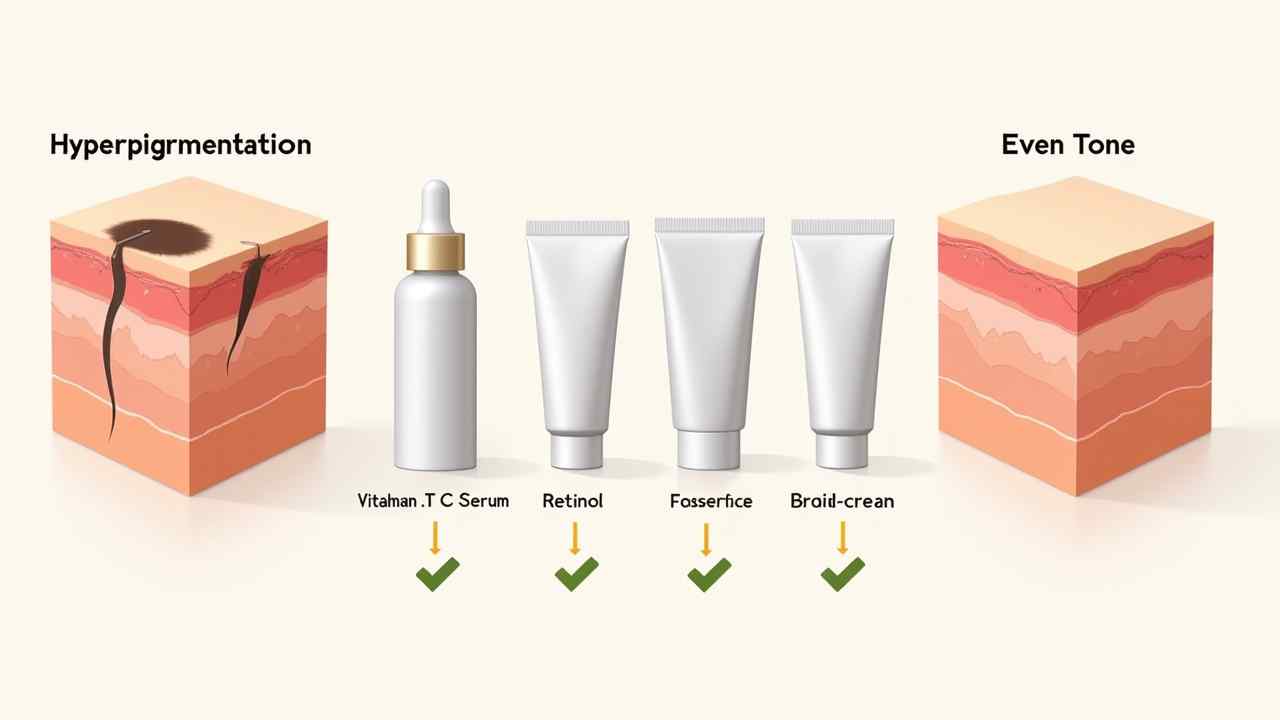
💡 How to Fade Pigmentation: A Dermatologist's Guide to Even Skin Tone
💡 A Dermatologist's Guide on How to Fade Pigmentation 💡
Hyperpigmentation is one of the most common and stubborn skin concerns. It is the umbrella term for any patch of skin that becomes darker than the surrounding area. This includes sun spots, dark marks left after acne, and melasma. It can make your complexion look uneven.
So, how do you fade pigmentation? The key is to understand that it is a marathon, not a sprint. Fading dark spots requires a consistent routine, patience, and the right combination of powerful ingredients. The great news is that a brighter, more even complexion is a very achievable goal.
This guide will explain the most effective, science-backed strategies. The cool, less intense sun of autumn here in Bursa makes it the perfect time to start a new treatment routine. Let's get you on the path to a radiant glow! ✅
🤔 First, What Causes Hyperpigmentation?
Hyperpigmentation is caused by an overproduction of melanin. Melanin is the natural pigment that gives your skin, hair, and eyes their color. A number of factors can trigger your pigment-producing cells (melanocytes) to go into overdrive. The main causes are:
- Sun Exposure: This is the number one cause of most dark spots.
- Inflammation: This is known as Post-Inflammatory Hyperpigmentation (PIH). It is the dark mark left behind after a pimple, a bug bite, or a scratch has healed.
- Hormonal Changes: Hormonal fluctuations can trigger a type of pigmentation called melasma.
☀️ What is the Most Important Step of All?
Before you even think about treatment serums, you must commit to this. The most important product to fade pigmentation is sunscreen. This is a non-negotiable rule. The sun's UV rays are what cause the spots in the first place, and they make existing spots darker.
All your hard work with treatment serums will be undone if you do not protect your skin from further damage. You must wear a broad-spectrum sunscreen with at least SPF 30 every single day. This is true even on cloudy days. Sunscreen is your number one tool for both prevention and treatment. ☀️
- What Are the Best Topical Ingredients to Fade Pigmentation?
To actively fade dark spots, you need to use specific "active" ingredients. These are the most proven and effective options to look for in your serums and creams.
1. Why is Vitamin C a Powerhouse?
Vitamin C is a fantastic antioxidant. More importantly for pigmentation, it is a tyrosinase inhibitor. This means it helps to block the enzyme that creates excess pigment. It is a gold-standard ingredient for brightening and evening out skin tone.
2. How Do Retinoids Help?
Retinoids (like retinol and prescription tretinoin) are another top choice. They work by speeding up your skin's cell turnover rate. This helps to shed the dark, pigmented cells more quickly, revealing the fresh, even-toned skin underneath.
3. How do Exfoliating Acids (AHAs) Work?
AHAs like glycolic acid are great for surface-level brightness. They work by dissolving the dead, dull skin cells on the surface. This can instantly make your complexion look more radiant and can help fade superficial spots.
- What About Professional Treatments?
For more stubborn or deep pigmentation, the best option is to see a board-certified dermatologist. They can offer more powerful treatments. This can include prescription-strength creams (like hydroquinone), chemical peels, or laser treatments. A professional can help you create the most effective plan for your specific needs. 🩺